
I was waiting until after the election to write this post as I didn’t want my personal thoughts to be in anyway seen as promotion or endorsement.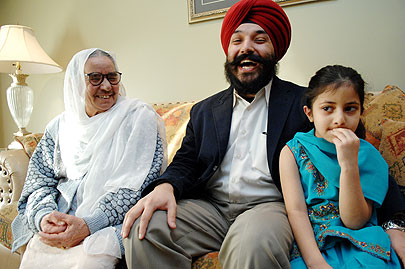
I have been a fan of Navdeep Singh Bains for many years now. I still remember his victory into the Canadian parliament as the first Amritdhari Sikh 4 years ago and I believe the youngest elected Liberal MP (26 years old) at that time. My respect for him grew, in what I believe, was his principled opposition to an overstretching then-Jathedar Vedanti on the issue of same-sex marriages.
Vedanti said he was dismayed that one MP, Ontario Liberal rookie Navdeep Bains, argued against him, but said the others listened respectfully.
“The Sikh religion would never accept such MPs,” said Vedanti. “Nobody would support such a person having such dirty thoughts in their mind because it is against the Sikh religion and the Sikh code of conduct and totally against the laws of nature.” [link]
Well many Sikhs as well as many others Canadians in the Mississauga-Brampton South riding, continue to support and ‘accept’ Navdeep. Just this month he successfully won his third term. (Vedanti on the other hand has come and gone [I have noted my criticism of the present Jathedar-obsession in a previous post])
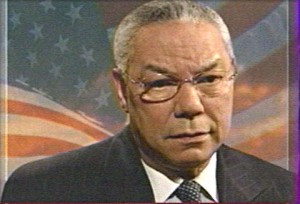 One aspect of the 2008 Election is reminiscent of the Sikh community’s response to the September 11, 2001 terrorist attacks. In the aftermath of that fateful Tuesday morning, Sikhs began declaring that, “we are not Muslims.” Of course, the intention was not to deflect hate or anger towards properly-identified Muslims, but to inform others that Sikhs are members of a separate faith. An implication from the “we are not Muslim” approach, however, was that it was okay to target Muslims. Some Sikhs therefore began asking themselves, ‘what if I was Muslim?’ The answer, of course, is that the discrimination and harassment would still be wrongful. As a result, Sikhs supplemented their statements by not only explaining that they are not Muslims, but openly denouncing hate directed against anyone based on their actual or perceived race or religion.
One aspect of the 2008 Election is reminiscent of the Sikh community’s response to the September 11, 2001 terrorist attacks. In the aftermath of that fateful Tuesday morning, Sikhs began declaring that, “we are not Muslims.” Of course, the intention was not to deflect hate or anger towards properly-identified Muslims, but to inform others that Sikhs are members of a separate faith. An implication from the “we are not Muslim” approach, however, was that it was okay to target Muslims. Some Sikhs therefore began asking themselves, ‘what if I was Muslim?’ The answer, of course, is that the discrimination and harassment would still be wrongful. As a result, Sikhs supplemented their statements by not only explaining that they are not Muslims, but openly denouncing hate directed against anyone based on their actual or perceived race or religion.
In the last few weeks, with Election Day approaching (and political strategies and rhetoric becoming increasingly bold as a result), questions have resurfaced regarding whether Senator Barack Obama is Muslim or Arab. (For example, “When a John McCain supporter at a recent rally said she didn’t trust Obama because he was an Arab, the senator replied: ‘No. He’s a decent family man.'”). The answer, to anyone who has paid attention to the news over the course of the past ten months, is no, Senator Obama is not Muslim or Arab. But the underlying question again is, ‘so what if he was?’
As we decide on the presidential candidate we will vote for this election year, their values, thought-processes, and interactional styles are as important as their policies. I feel regardless of who wins the election, their policies will ultimately change during their presidency. George Bush Senior said he would provide tax-cuts during his presidency and ultimately raised them. Bush Two wanted smaller government, but added the Office of Homeland Security. Bill Clinton promised health-care reform for insuring more Americans, but when he left office “ … there were at least 3 million more people uninsured in the U.S.”. The only stability these candidates can provide us are their values, thought-processes, and interactional styles because, at both of their ages, habits generally don’t change. These habits rooted in personality and experience, will provide insight into what kinds of policy decisions they are more likely to make when policy changes occur during their presidency for various reasons. Each candidate’s current stance on policies during the campaign season and voting record are crucial for providing insight into their values and thought-processes, but they should not be the sole measures for determining who is the better candidate. For example, how they interact at debates is critical because it reveals temperament and interactional style for engaging in “heated” moments we can expect our leader to encounter domestically and internationally, particularly after the state-of-affairs Bush is leaving us with. These debate moments along with those on the campaign trail also show us how these candidates will work “across the table” with red AND blue politicians to get legislation passed. Ultimately, we know there won’t always be a foreign policy advisor or a “cheerleader” to hold either of these candidates’ hands during these “heated” moments when you just have to act, while ensuring you’re doing the best for the American people and upholding American principles and ethics.
So another way of gaining insight into a person’s values, thought-processes, and personality is how they make and spend their money, particularly campaign money. We have heard of the battle of McCain and Obama robo-calls and Obama campaigning through video games, but what’s the overall picture look like … click here and here to decide for yourself!
Let’s us know what you think!
The Presidential election is two weeks away, and before we vote, we should know where the candidates stand on issues, not just whose campaign style we like. Below is a summary of the candidates’ positions on a selection of issues (compiled by the Associated Press). For more detailed information on their positions, check out the McCain and Obama websites.
ABORTION
McCain: Opposes abortion rights. Has voted for abortion restrictions permissible under Roe v. Wade, and now says he would seek to overturn that guarantee of abortion rights. Would not seek constitutional amendment to ban abortion.
Obama: Favors abortion rights.
AFGHANISTAN
McCain: Favors unspecified boost in U.S. forces.
Obama: Would add about 7,000 troops to the U.S. force of 36,000, bringing the reinforcements from Iraq. Has threatened unilateral attack on high-value terrorist targets in Pakistan as they become exposed, “if Pakistan cannot or will not act” against them.
The Christian Science Monitor recently ran a story on how the Democratic Party is outpacing Republicans in polls among people of faith [Hat tip, Ennis]. The article emphasized how norms have changed between generations, and how values have realigned towards inclusivity among younger voters who identify with a faith community:
…young adults are more open to religious diversity and cooperation, they are less likely to say that one has to believe in God to be moral…
Young voters are much more inclined to support a larger government that provides more services (57 percent versus 45 percent of the overall population).
Young adults support government involvement most in regard to helping the poor and the environment.
Does this mean we’re seeing a shift against the “Culture Wars” of the Reagan-era? Voters across the board ranked wedge issues — including mariage equality and abortion — at the bottom of their political concerns. In the context of today’s uncertainty, it’s not surprising that people would be more concerned about health care and the economy. That said, I wonder if this shift away from “values” debates indicates a permanent trend for young voters.
While the survey’s analysis focused on divergences between Catholics and Evangelicals, a part of me wonders how much increasing religious diversity in the country has pushed against absolutist morality. Younger voters have shifted their prescription for the government’s role (or non-role) in regulating morality. These voters are also re-opening the door for how we define morality, whether multiple meanings can co-exist, and whether or not these meanings must be rooted in a faith identity or context.
Recently on TLH we have had many posts around the 2008 Presidential Campaign. How these candidate make us feel and their policy positions are equally important when deciding, which candidate to support. The qualities and values he brings to the table for organizing support around what he thinks are critical issues is important for identifying which man will make the best key leader in America. We have listened to them debate, create campaign ads, and talk on campaign trails to their supporters. At the end of the day, I personally want to know how McCain and Obama will stand on issues important to me as a Sikh. The  economy, healthcare, foreign policy, and civil rights are important to all Americans regardless of ethnic or religious background; however, the nuances of how each ethnic/religious community is effected by these larger issues is important when their members vote for a Presidential Candidate. Many Sikhs may want to know:
economy, healthcare, foreign policy, and civil rights are important to all Americans regardless of ethnic or religious background; however, the nuances of how each ethnic/religious community is effected by these larger issues is important when their members vote for a Presidential Candidate. Many Sikhs may want to know:
“What is John McCain’s stance on racial profiling? How would an Obama administration address workplace religious discrimination?”
In an effort to answer some of these questions, the Sikh Coalition sent questionnaires to both McCain and Obama campaign offices many months ago. The intention was to have this information available when organizing Sikhs to vote at local Gurdwaras. However, only the Obama campaign responded. In an effort to provide bi-partisan information to the Sikh constituency, the Sikh Coalition is now petitioning McCain to respond, particularly when there are less than 30-days left until election-day. Sikhs deserve to hear his voice when making their decision at the ballot box. In addition, as a non-profit organization, the Sikh Coalition can not solely release Obama’s responses.

“I don’t trust Obama. I have read about him and he’s an Arab.”
So said a McCain supporter at a recent rally. To such an ignorant, bigoted, racist comment, McCain could only reply:
“No, ma’am,” he said. “He’s a decent, family man, a citizen that I just happen to have disagreements with.”
McCain did not say that Arabs are decent people, instead we are left to infer that “Arabs” and “decent, family man” are somehow antonyms. Barack Obama should not be let off the hook either as he is just as complicit. Earlier when his Democrat primary opponents were trying to smear him, he distanced himself from being Arab and Muslim (which of course he is not!), but did not stop that conversation and say Arabs and Muslims are just as American as anyone else.
In keeping with the recent Election 2008 theme on TLH, I ask you the following — which party do you think completes this sentence:
[x] believe that individuals should contribute time and resources to serving the poor, vulnerable, and less fortunate members of our society.
Do you think x refers to:
- Democrats; and/or
- Republicans.
From the Volokh Conspiracy:
Dear Senator McCain:
Repeatedly calling me and everyone else in the United States “my friends” is extremely annoying. In part, it’s just an irritating phrase. Beyond that, I’m not your friend. I don’t know you, and, from what I know of you, I don’t even really like you. Sorry to focus on such superficialities when the world economy is going to Hell, but you probably lost more votes with your constant repitition of “my friends” than from anything Obama said.
Sincerely,
David B. [link]
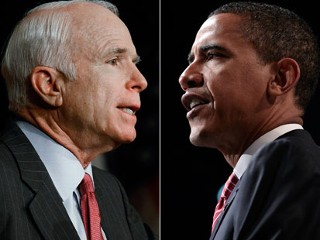 Reema (I’m signing on.)
Reema (I’m signing on.)
Both candidates used the phrase. And of course, because of my bias, it grated on my nerves when McCain used it. It was just amusing when Obama did. Anyone who is about to control my life and the lives of all US residents is not a friend, and they shouldn’t try to be. They just better know what they’re doing because everything (economy, environment- one in 4 mammals is threatened with extinction, social security, Medicare + Medicaid) seems to be falling apart at the same time. Not to be dramatic or anything. The only suggested economic solution from a Sikh point of view I found was vague, overly ambitious, and not really very palatable either.
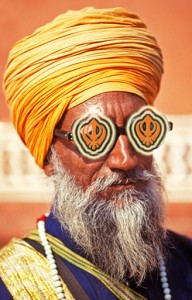 Has anyone else noticed how ridiculous the (US Presidential Election) campaigns have gotten? The ridiculousness has reached a new all time low in the past few weeks with both sides slinging mud, making tenuous connections, and outright lying. Admittedly, I have a preference for one side over the other, but like most people nowadays that means less than it used to and I have truly tried to be “fair” in my analysis of recent politicking. What I have seen from both sides makes me gag.
Has anyone else noticed how ridiculous the (US Presidential Election) campaigns have gotten? The ridiculousness has reached a new all time low in the past few weeks with both sides slinging mud, making tenuous connections, and outright lying. Admittedly, I have a preference for one side over the other, but like most people nowadays that means less than it used to and I have truly tried to be “fair” in my analysis of recent politicking. What I have seen from both sides makes me gag.
It seems to me that the strategies on both sides of the isle amount to this: avoid answering any questions; lie/stretch the truth whenever you feel you can get away with it (or even when you know you can’t), and don’t forget to act arrogant. If you doubt my generalization, I implore you to go to johnmccain.com or barackobama.com and look at the ads for yourself, watch the debates, or just snippets on youtube. What’s even worse is that the media has come to expect this childishness. Some of you may be thinking “So what?! – this is politics.” It is my hope that most of you don’t feel that way and just accept this behavior as the status quo.
I think what gets to me about this whole election cycle is how fundamentally un-Sikh-like the behavior has been. Let me explain. As a Sikh – I like to look at things through my Sikh glasses and when something is fuzzy or just doesn’t make sense, it is time to analyze why. Growing up as a Sikh and trying to live a gursikh life now, I have come to think of certain things – stand up for what you believe in, speak the truth – as almost requirements for being a good person. Gurbani provides numerous references to such virtues and while I am sure they are no different from many other religions, I think they are much more pronounced in the Sikh faith. Integrity, honesty, and courage are central to Sikhi. So from this perspective I evaluate recent campaign tactics.
Ultimately, my point is that the campaigns aren’t making their cases very well to someone like me, who is wearing gold rimmed, khanda shaped, Sikh glasses. Ideally, I’d like a President who I can feel good about, someone I see as a role model, and right now the choices leave much to be desired…
—
By the way, despite the above I feel one of the candidates is at least trying to steer clear of the muck and focus on the issues…so I give props to OBAMA for that. Go OBAMA!
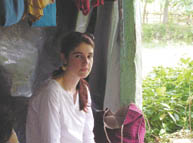 In an article published in the academic journal Ethnic and Racial Studies, last year, a PhD student in political science, Marie-Eve Reny makes a comparative study of political mobilization amongst the Sikhs of Punjab and the Uyghurs of Xinjiang in China.
In an article published in the academic journal Ethnic and Racial Studies, last year, a PhD student in political science, Marie-Eve Reny makes a comparative study of political mobilization amongst the Sikhs of Punjab and the Uyghurs of Xinjiang in China.
The Uyghurs are a Muslim community of Turkic descent in Western China. Many in the region have been fighting for their independence from China to establish Uyghurstan.
For her abstract, Marie-Eve Reny writes:
This article examines the reasons why the politicization of language has not been translated into disruptive forms of ethnic mobilization as opposed to the political salience of religion among the Uyghurs in Xinjiang throughout the 1990s and the Sikhs before and after the creation of Punjab in 1966. The article argues, from a structural-rationalist perspective, that language-based claims in Xinjiang and in Punjab have been accommodated by the respective central governments to a larger extent than religious claims have. Accommodation has taken the form of particular policies as well as greater incorporation of minority elites on the basis of language, which have in turn significantly reduced the possibilities of anti-regime sentiments and the incentives for disruptive forms of pressure on the basis of linguistic claims among the minority group. Religious claims have, however, not been accommodated in a similar way.
As part of its series on the upcoming federal elections in Canada, the Globe and Mail offers this article on the emergence and success of Sikhs in the Canadian political scene. Consider: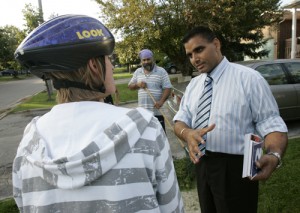
- Sikhs [are] the only group with a greater number of MPs than their share of the population.
- [In the House of Commons,] Punjabi is now the fourth most common language, after English, French and Italian.
- Many Sikh candidates live in Mississauga and Brampton, where they comprise 15 per cent and 19 per cent of the population respectively.
- [There are] 17 Punjabi newspapers in Brampton [Link]
These statistics are very impressive. I applaud the Sikh candidates for their participation in Canadian politics (which cuts against the suggestion that Sikhs are not sufficiently integrating into Canadian society). And I thank this publication for highlighting the political advancements that Sikhs are making in Canada.
That said, I am troubled by two parts of the article:
Though this may not be the best analogy, I’m going to make it. It seems the Congress party in Haryana made the demand for a separate Gurdwara committee, in order to mobilize Sikh votes in their favor (at least according to one news source).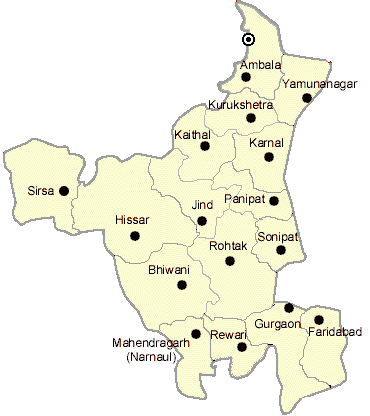
What is also well known is that Haryana’s Sikh vote has traditionally been mobilised by the SAD(B) for Devi Lal and then his son Om Prakash Chautala’s party. After 1984, the anti-Congress vote headed in that direction even more. By all accounts, the 2005 Assembly elections — also the one in which the Congress manifesto included the demand for a separate gurdwara management body for Haryana — constituted a break in the story. According to a CSDS survey, 50 per cent of the Sikh vote in Haryana went to the Congress in 2004, and only 35 per cent to Chautala’s INLD. [link]
And Sarah Palin- as qualified as she may be- was not selected to run as Vice President because of her outstanding qualifications, but for her token status as a woman. It was hoped that she would fulfill the dreams of Hillary supporters who wanted the glass ceiling in the White House shattered. (From what I’ve seen in the polls though, this doesn’t seem to have worked. The women who rallied behind Hillary don’t want a token representative.)
[Joint post by Singh and Reema]
The plot is thick. Nearly 100 million Phillipine pesos are at stake (roughly $ 2.2 million USD). Multiple groups of god-father like figures control entourages of loyal henchmen. Money is being used for unauthorized purposes, and powerful figures have put competitors out of play – risking not just the money, but [dun dun dun]…their lives!
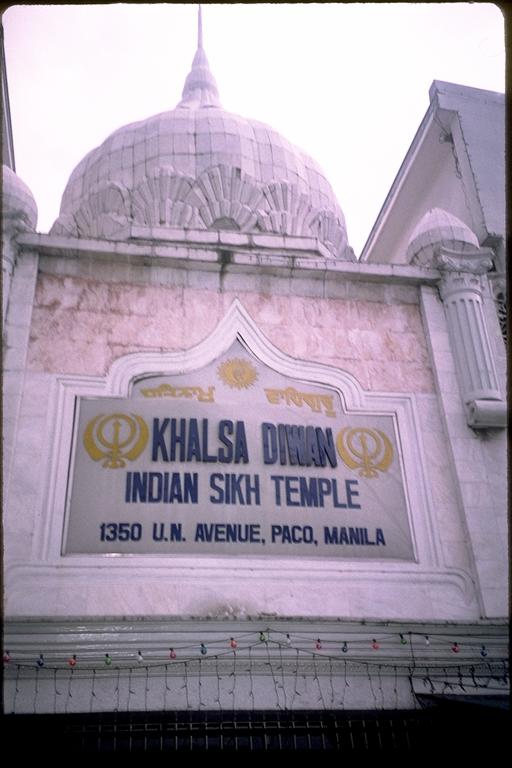
Is this:
(a) The set of Al Capone?
(b) A government paramilitary force under a dictatorship?
(c) The Punjab Police?
(d) Or is it just the story of a gurdwara?
You guessed it: the answer is (d)!
This is the set for the latest episode of “Who Wants to be a Pardhaan (President of the Gurdwara),” and it takes place in Manila, where a battle for control of the local guru ghar has been waged for years. We had heard of this type of thing being publicized in the West (Europe and the Americas), but why should the Phillipines be any different – and undoubtedly this story has just as much drama and un-Sikh-like behavior as any we have heard. It goes something like this:
2004: Bansal became Gurdwara president following a court-supervised elections. After coming into power, he looked into organization’s assets and found that Amardeep’s group (the old committee) had siphoned off P30.6 million from Gurdwara donations to a new corporation they had created—Khalsa Diwan (Sikh Religious Association) Inc.
In light of the Indian government’s response to this past weekend’s bombings in Delhi, this video seems especially poignant (not to mention sweeet!).

[hat tip: chapati mystery]
Dr. Pashaura Singh, Professor at University of California, Riverside, was recently appointed to its Dr. Jasbir Singh Saini Chair in Sikh and Punjabi Language Studies. However, not without controversy. There have been several incidents since his inception to the Chair where members of the Sikh community have challenged his appointment because of Dr. Singh’s interpretation of the Sikh scriptures.
Sikhs believe the scriptures were revealed to a series of gurus…those revelations in the form of 6,000 hymns were compiled in 1604 by the fifth guru, Guru Arjan, and became the holy scriptures. Pashaura Singh’s thesis and subsequent research are based on a manuscript that surfaced in 1987 that he believes is a draft of the 1,430-page document compiled by Guru Arjan. Singh says the so-called 1245 manuscript, part of the rare book collection at Guru Nanak Dev University, includes sections that are blank and others that have been crossed out, showing evidence of having been edited. [link]
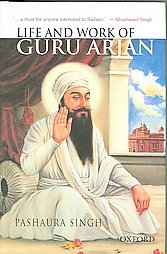 The story goes back many years. Singh, coming from the University of Michigan, was hired in 2005 to teach Sikh and South Asian religious studies. While at that time the chair position was not official, Dr. Singh was recruited with the promise of a potential endowed chair that would provide him with financial support for research. At that time, members of the Sikh community expressed concern about Dr. Singh’s appointment stating his research was problematic and challenged traditional Sikh views. Another issue stemmed from the fact that Ellen Wartella, executive vice chancellor and provost, assured the community in writing that while Singh would teach religious studies “it has been determined that he will not hold this chair.” The community is upset that the university went back on its word.
The story goes back many years. Singh, coming from the University of Michigan, was hired in 2005 to teach Sikh and South Asian religious studies. While at that time the chair position was not official, Dr. Singh was recruited with the promise of a potential endowed chair that would provide him with financial support for research. At that time, members of the Sikh community expressed concern about Dr. Singh’s appointment stating his research was problematic and challenged traditional Sikh views. Another issue stemmed from the fact that Ellen Wartella, executive vice chancellor and provost, assured the community in writing that while Singh would teach religious studies “it has been determined that he will not hold this chair.” The community is upset that the university went back on its word.
Today, members of the Sikh community are still upset about Dr. Singh’s appointment and are arranging a peaceful protest on the university grounds on September 26th, 2008.
The idea that the scriptures were edited or changed is blasphemous to traditional Sikhs. “If this is true, then the revealed word of God is not the revealed word,” said Dr. Baljeet Sahi, an Altadena veterinarian and president of Sikhs for Preservation of Sikhism and Sikh Heritage. Sahi called the 1245 manuscript fraudulent and said it was obtained from a scrap dealer. He said it may have been written by one of the guru’s rivals, who started a parallel tradition after he was denied a guruship. [link]
Public intellectual Patwant Singh observed that Sikh immigrants have “not only prospered in business, industry, and the professions; they are also beginning to participate in the political life” of their adopted homelands.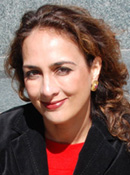 Case in point — Harmeet Kaur Dhillon is currently seeking a seat in the California State Assembly (from the 13th district no less, which covers several prominent San Francisco neighborhoods).
Case in point — Harmeet Kaur Dhillon is currently seeking a seat in the California State Assembly (from the 13th district no less, which covers several prominent San Francisco neighborhoods).
Harmeet’s web site indicates that she has exceptional academic credentials, extensive experience as an attorney, and has been at the forefront of important social issues, especially and including domestic violence in the South Asian community.
Of course, I mention Harmeet’s candidacy here not because of her C.V. or platform, but, let’s face it, because she’s a Sikh. That said, while having more Sikhs in elected public office is important, it does not follow that a Sikh should be supported simply because he or she is Sikh.
On Wednesday, August 27, the Delhi High Court sentenced 4 men (Lal Bahadur, Ram Lal, Virender and Surinder Pal Singh) to life in prison, eighteen years after a trial court acquitted them for lack of evidence. The men were charged with rioting, murder, and conspiracy, related to the deaths of Rajinder and Sardool Singh who were burnt alive on November 1, 1984 and their property looted in Sagarpur. The 4 men were also fined Rs. 21,000 each (about $481.43 per person). The High Court stated:
“it is a case where the members of one community were singled out and were murdered and their properties were burnt and looted. Such lawlessness deserved to be sternly dealt with”. [link]
Interestingly, the court found that conspiring to commit a crime was equal to committing the actual crime (I’m assuming that “members of unlawful assembly…in prosecution of the object…” is conspiracy; it’s unclear from the press release whether this is for conspiracy to riot/murder/combination):
“We may observe here that the liability of the members of unlawful assembly who knew that an offence was likely to be committed in prosecution of the object for which they had assembled is equal to those who commit it,” the Bench observed in a judgement on an appeal filed by the state challenging the trial court’s acquittal order. [link] (emphasis added)
 According to a couple of sources, the state appealed the case after the trial court found there wasn’t enough evidence in 1990. If this is true, and not just bad journalism (fabricated facts inserted into the press release), I wish I could congratulate the prosecutors who pursued and won this case.
According to a couple of sources, the state appealed the case after the trial court found there wasn’t enough evidence in 1990. If this is true, and not just bad journalism (fabricated facts inserted into the press release), I wish I could congratulate the prosecutors who pursued and won this case.
A sessions court had earlier on October 31, 1990, acquitted the accused due to lack of evidence. But the state had challenged the judgment in the Delhi high court stating that it have enough evidence to nail the accused persons. [link]
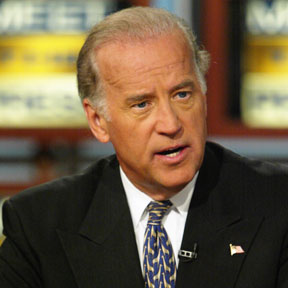 Once again, Indian-Americans have been unwillingly thrust into the heart of a contentious American political battle. For those of you who don’t remember, in 2006, incumbent Senator George Allen singled out and subsequently called an Indian-American, S.R. Sidarth, “macaca” while on the campaign trail. See video here. As The Washington Post’s national political reporter noted, Allen’s use of that slur was a “turning point” in his failed reelection bid, and became “an everlasting part of the political landscape.”
Once again, Indian-Americans have been unwillingly thrust into the heart of a contentious American political battle. For those of you who don’t remember, in 2006, incumbent Senator George Allen singled out and subsequently called an Indian-American, S.R. Sidarth, “macaca” while on the campaign trail. See video here. As The Washington Post’s national political reporter noted, Allen’s use of that slur was a “turning point” in his failed reelection bid, and became “an everlasting part of the political landscape.”
Just a few days ago, presumptive Democratic nominee Barack Obama selected fellow Senator Joe Biden to serve as his running mate. In 2006, Senator Biden said, “In Delaware, the largest growth of population is Indian-Americans, moving from India. You cannot go to a 7-Eleven or a Dunkin’ Donuts unless you have a slight Indian accent.” See video here.
Senator Obama’s decision has generated renewed interest in the 7-Eleven gaffe. See, e.g., here and here. The question is, should we care? In this post, I argue “yes.”
Guest blogged by Mewa Singh
I did not think I was going to write this post, but after seeing a post on the most popular South Asian American blog – Sepia Mutiny – by Amardeep Singh, I had to make a comment about Musharraf’s resignation to avoid impeachment.
For a quick primer on the career of the Pakistani dictator – Pervez Musharraf, watch the Al-Jazeera video:

